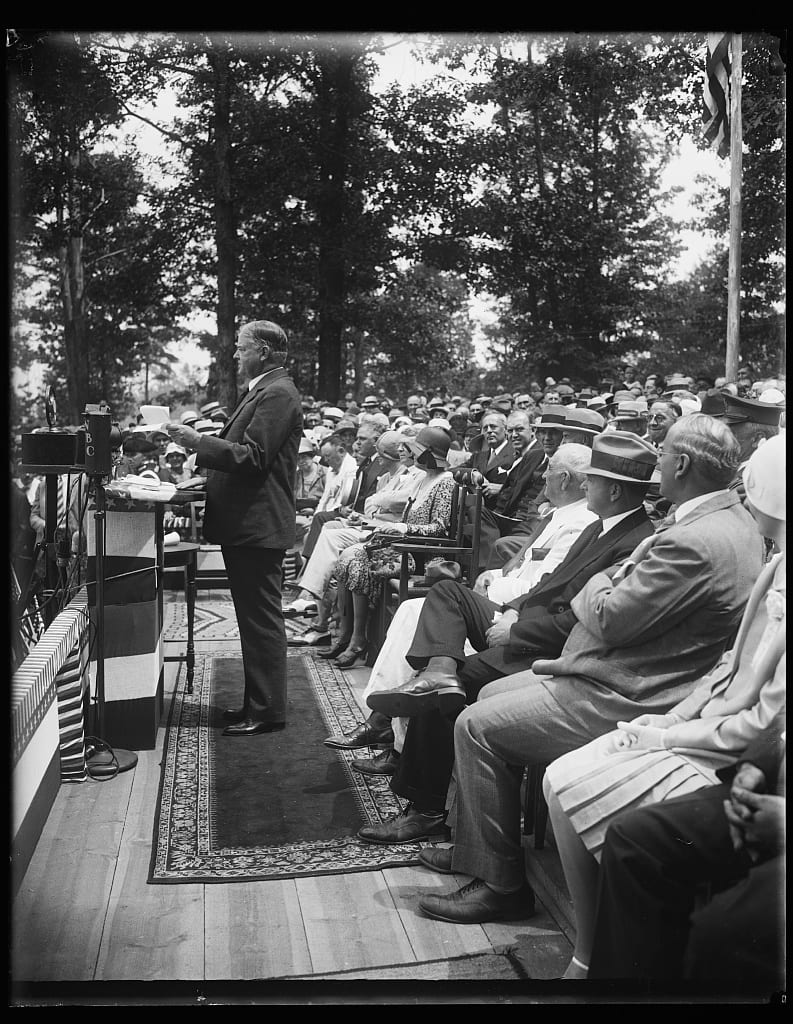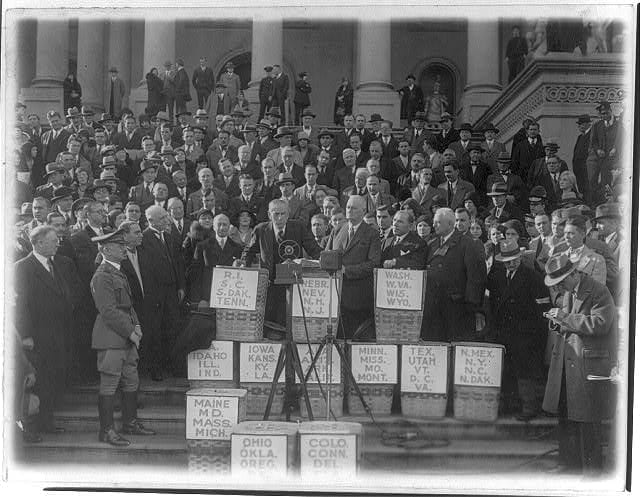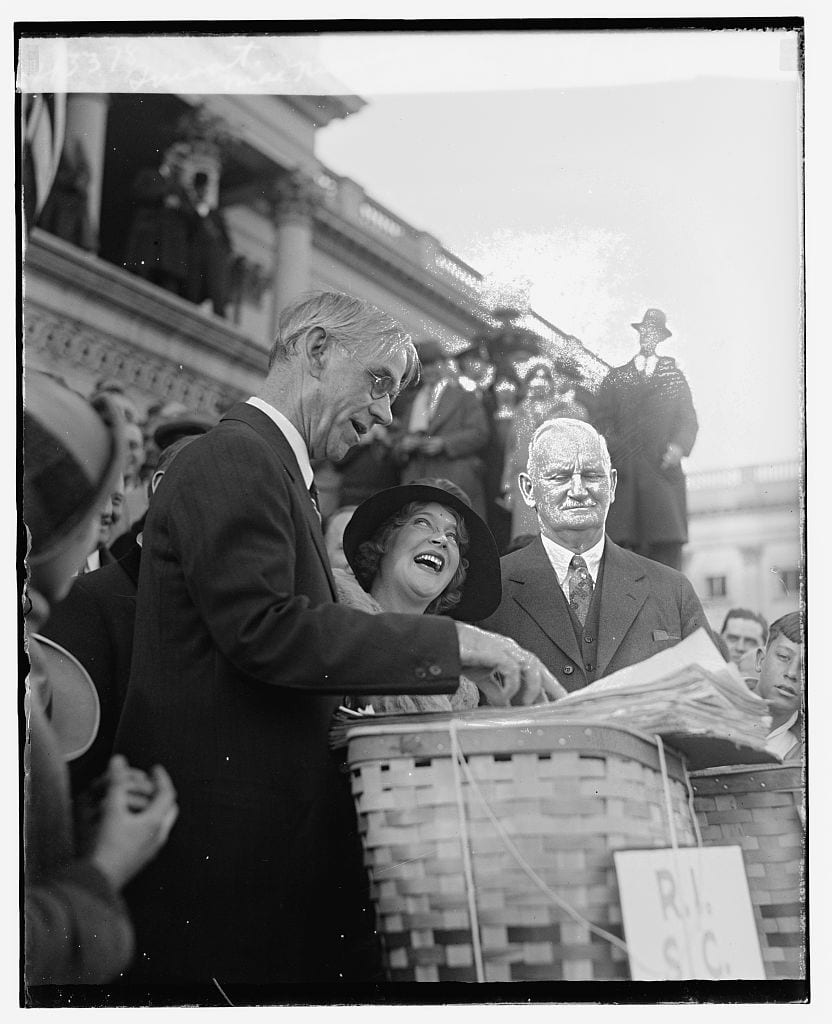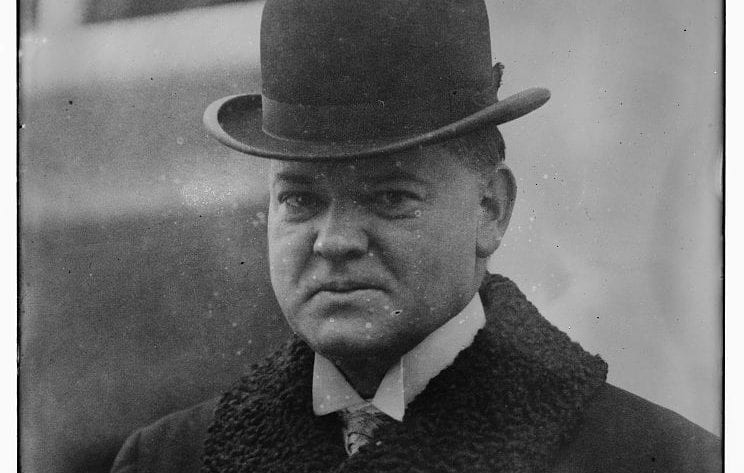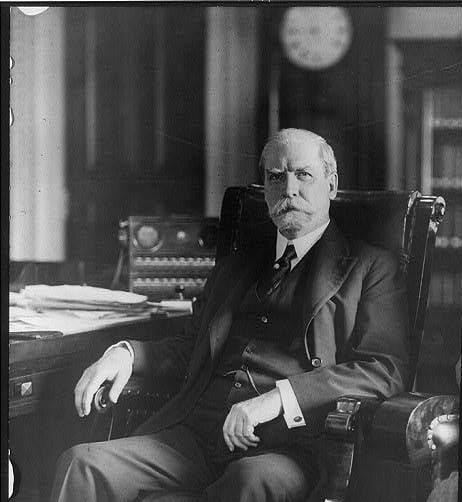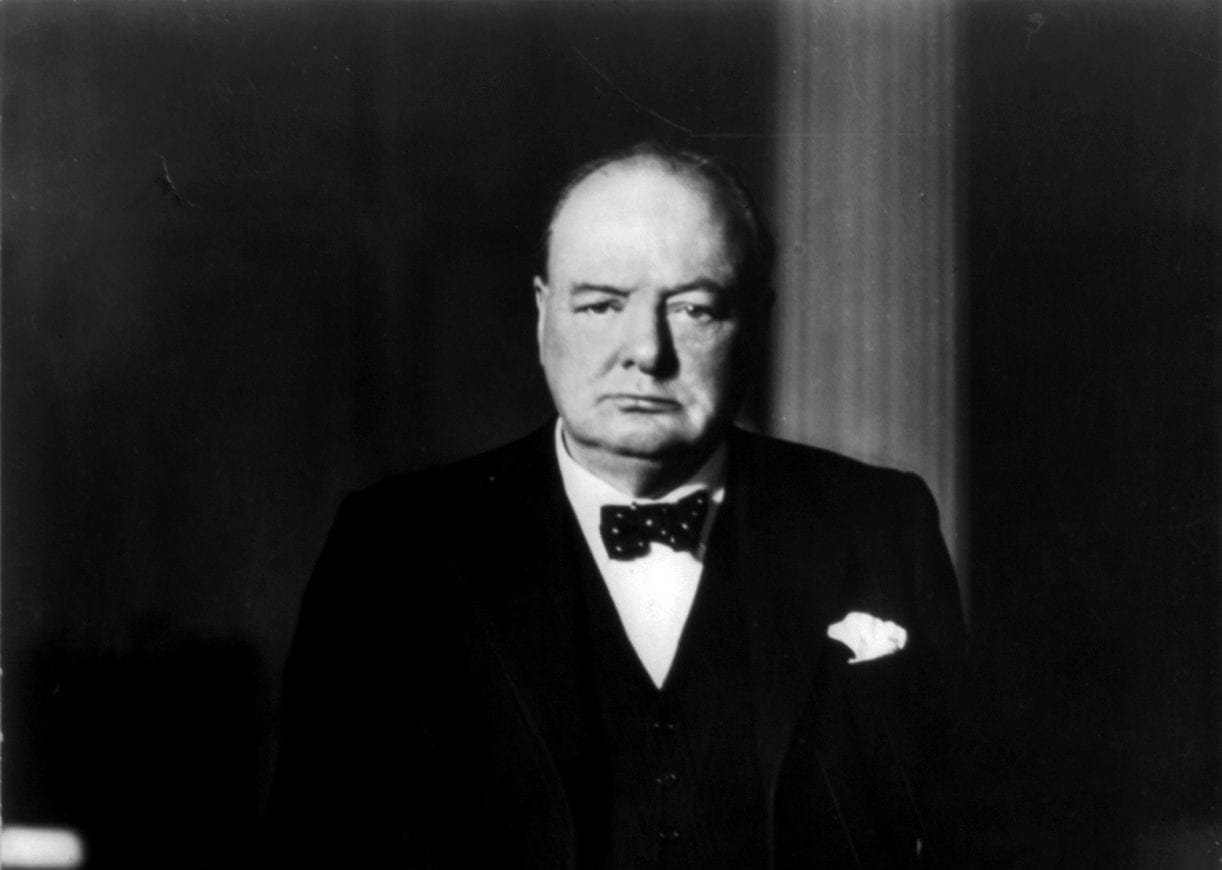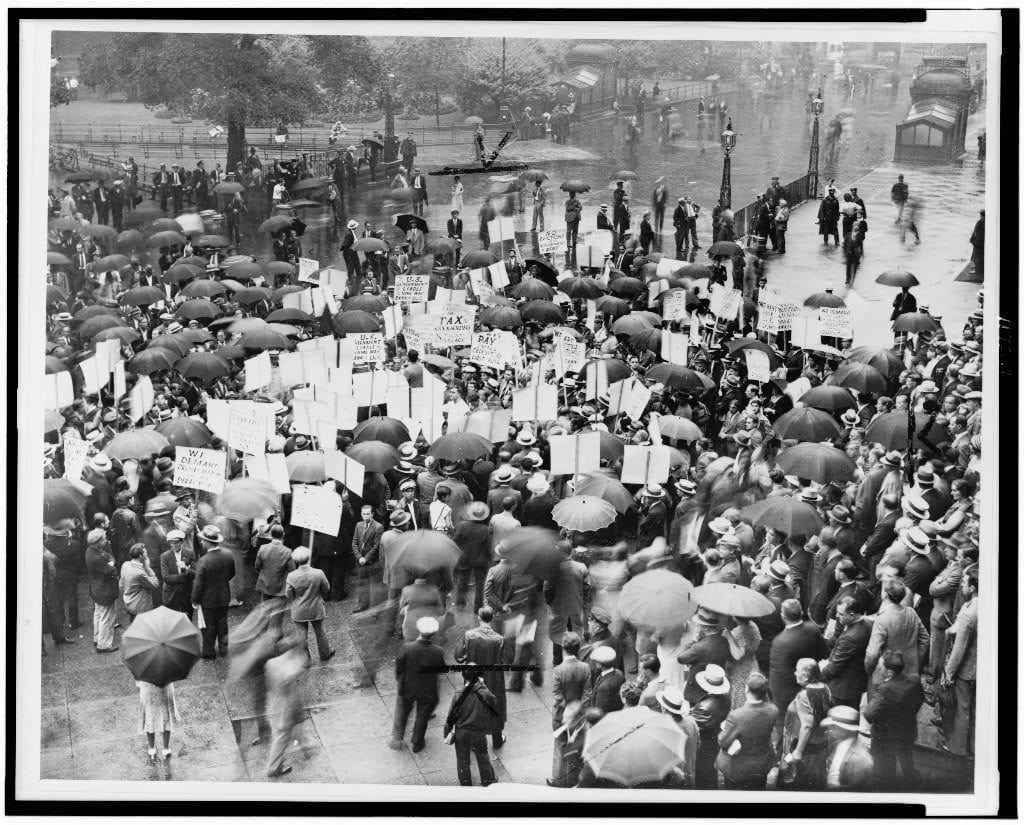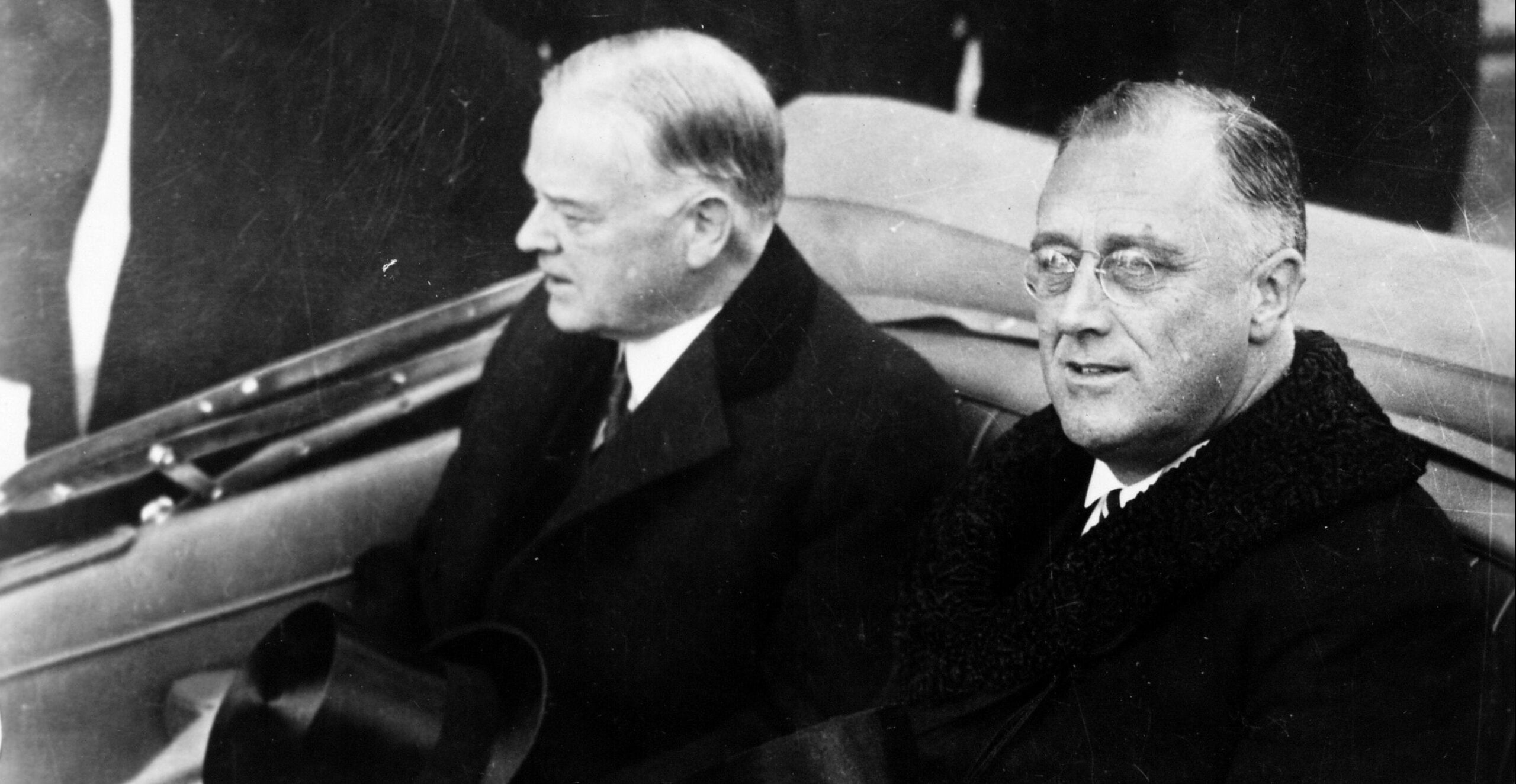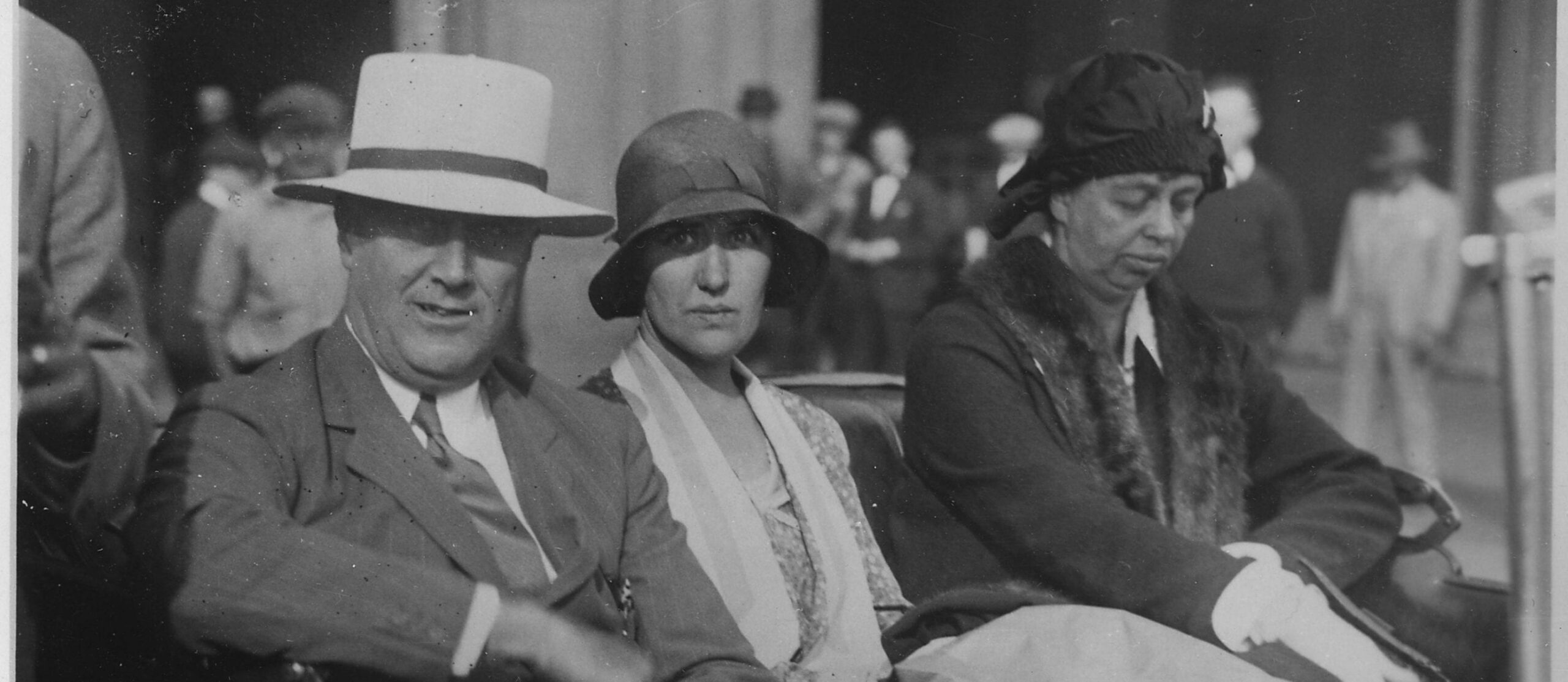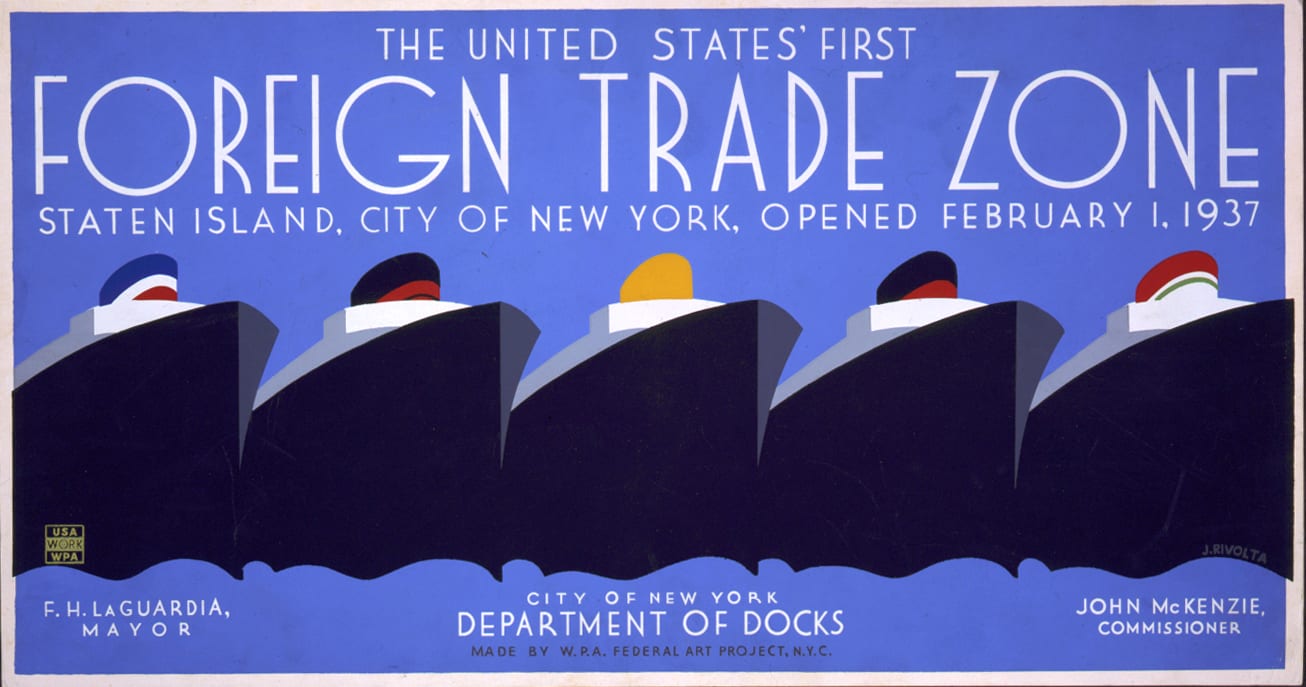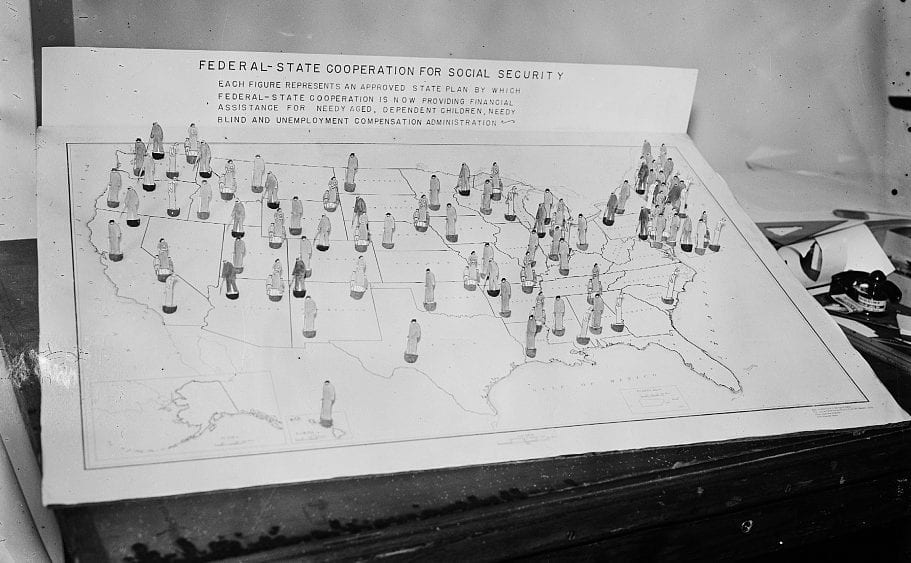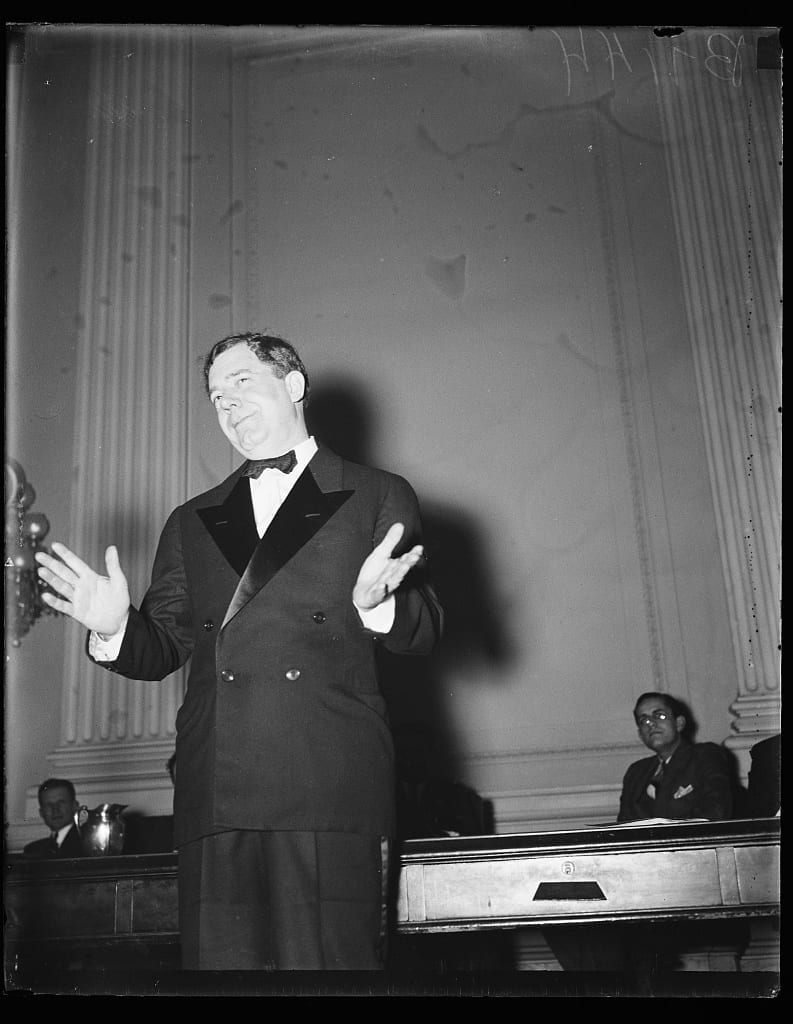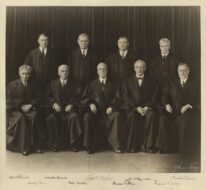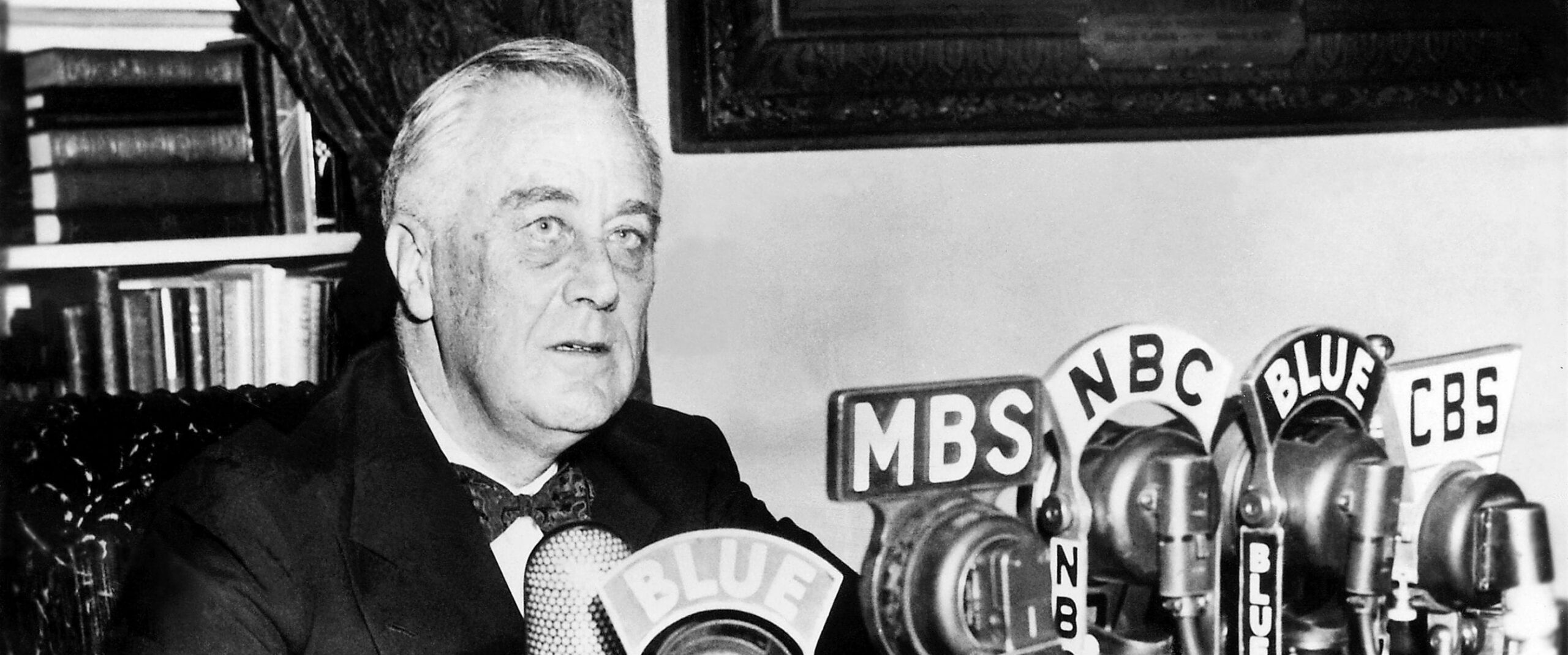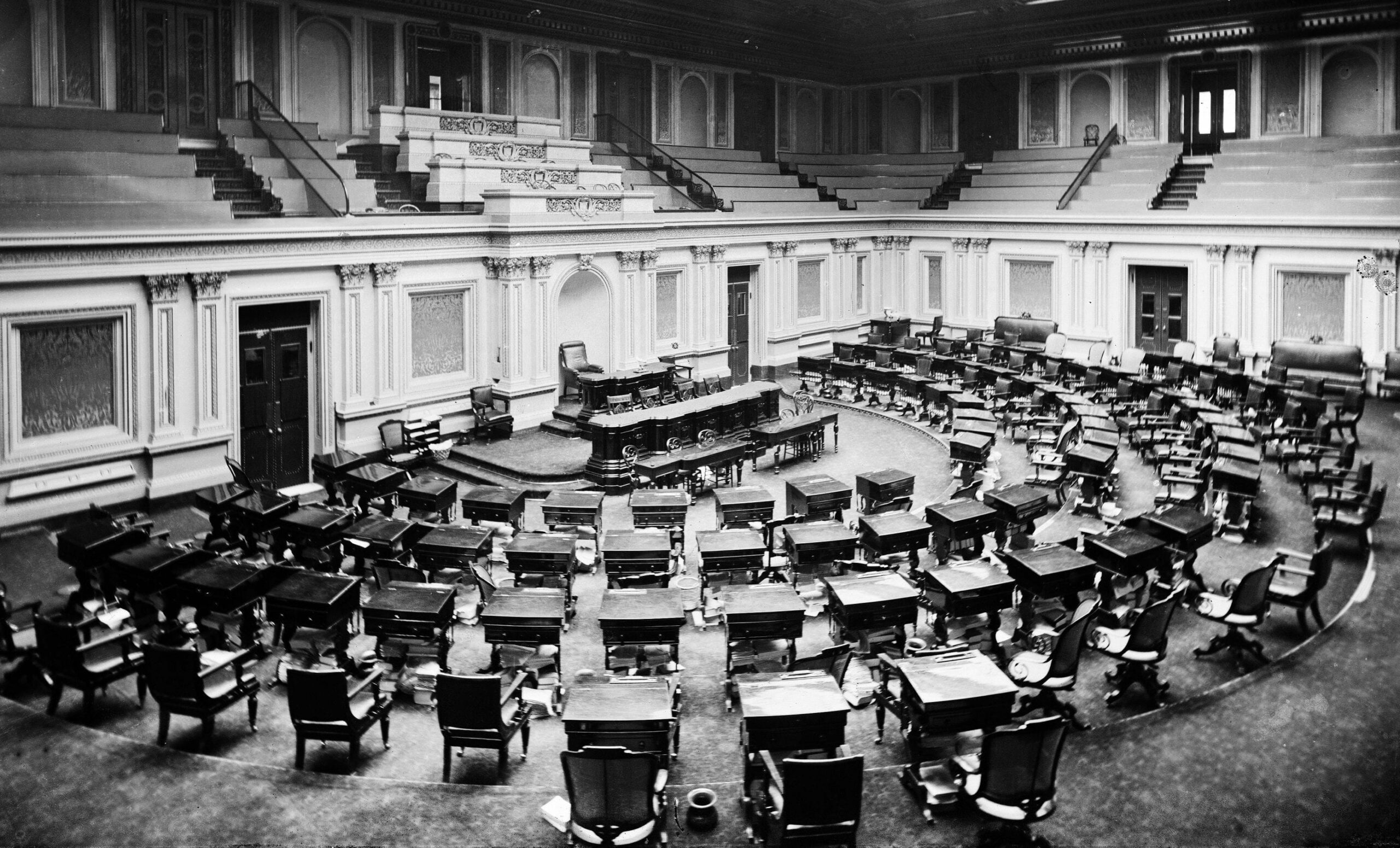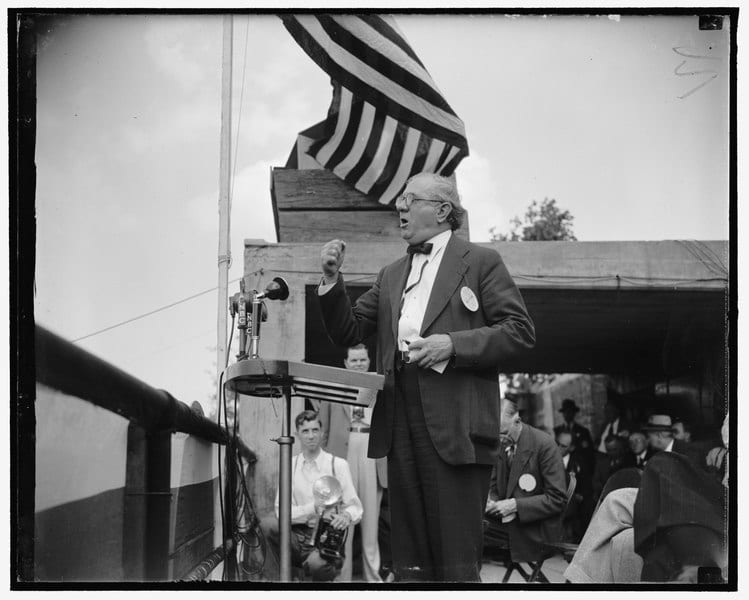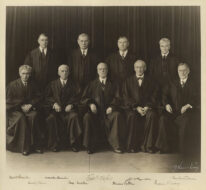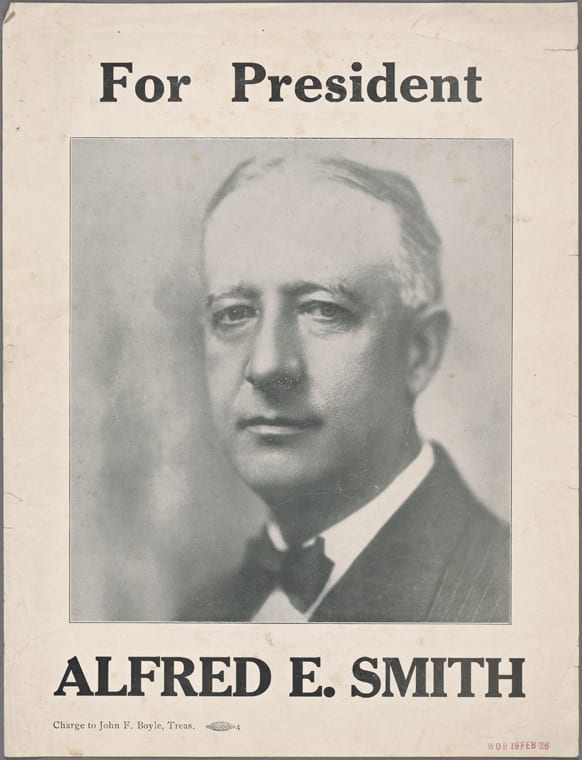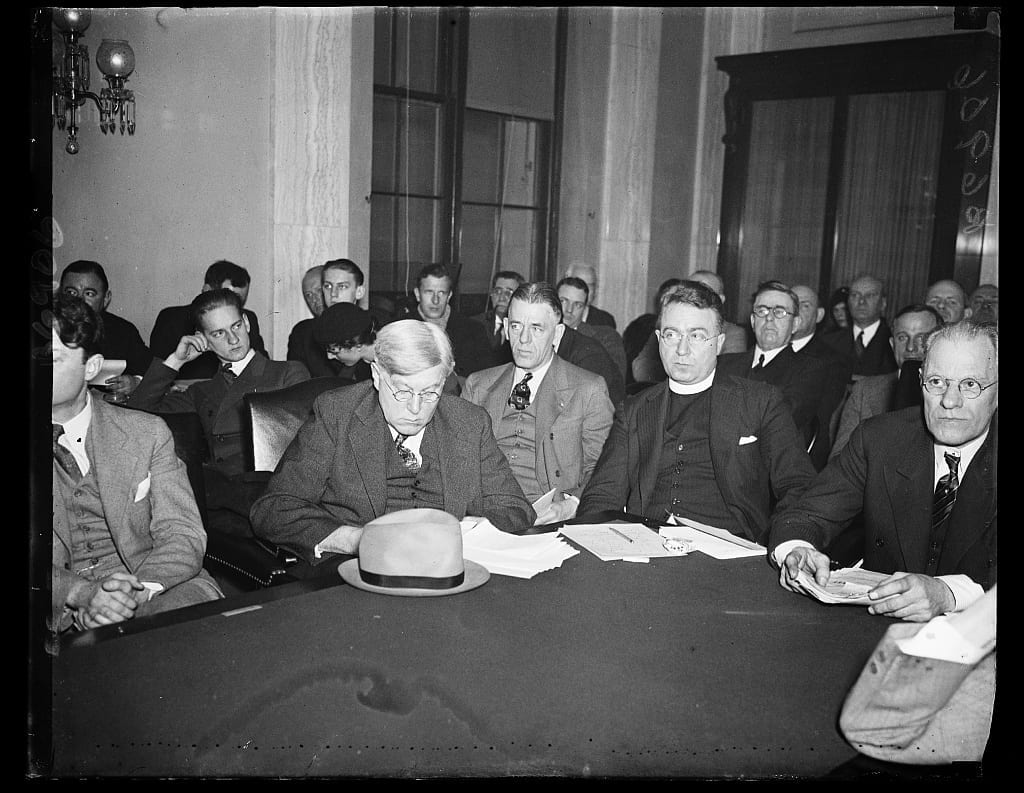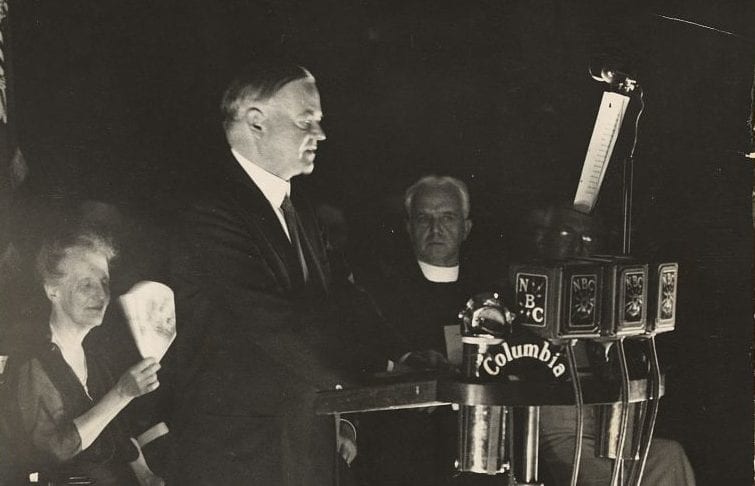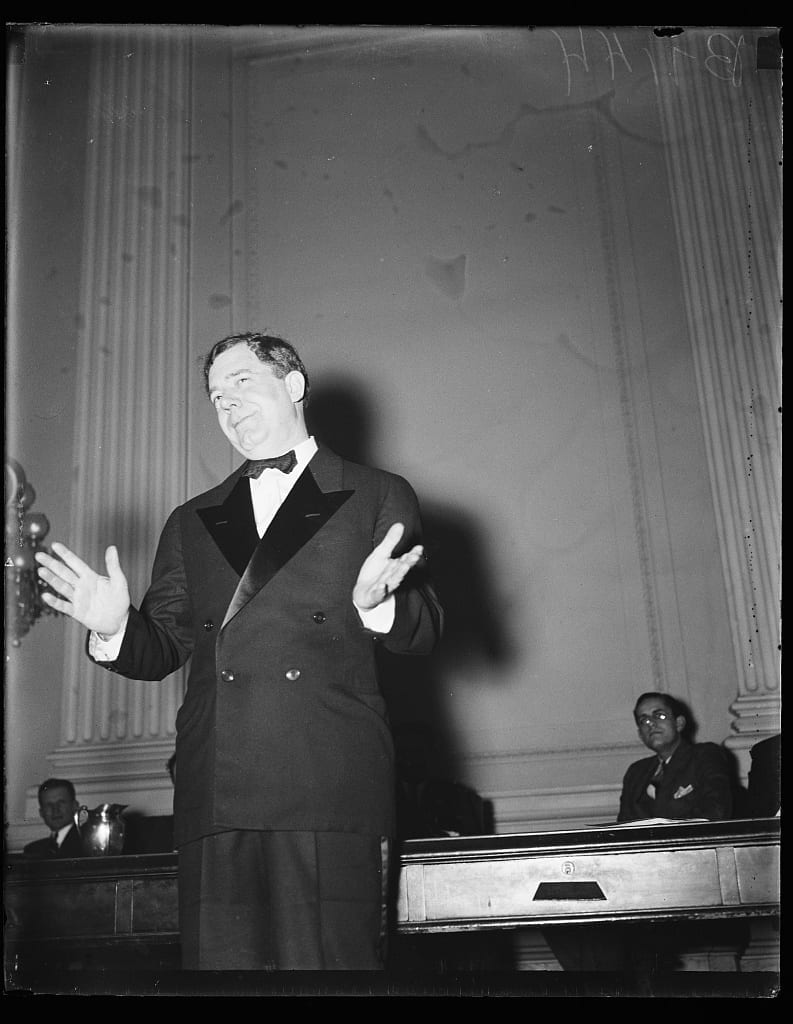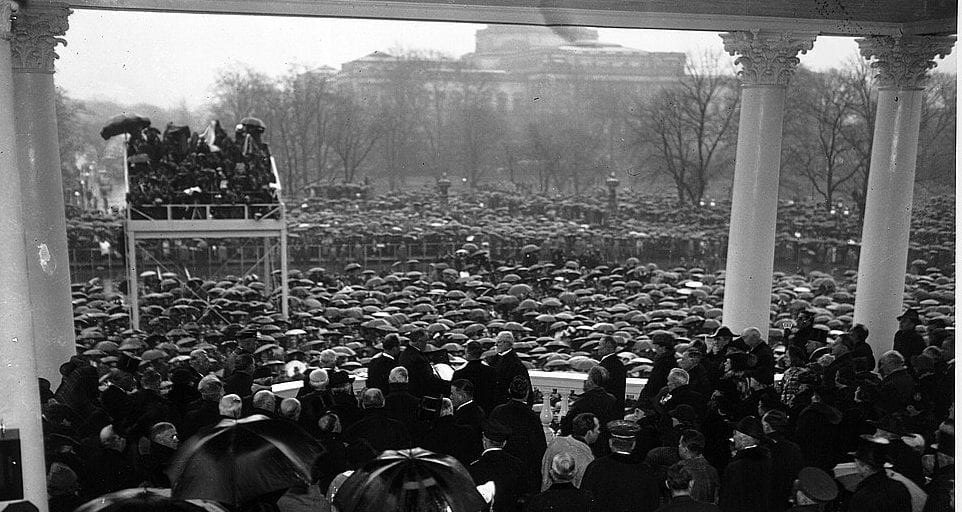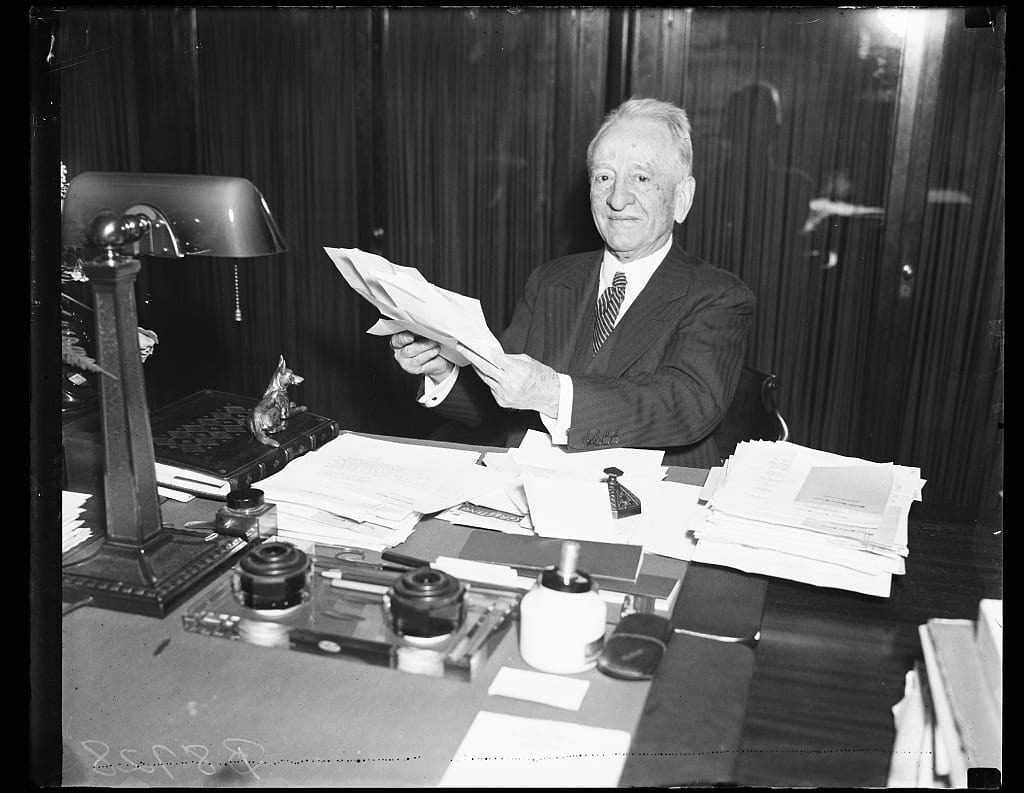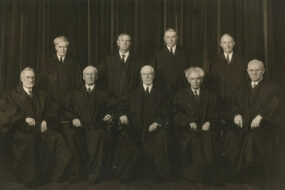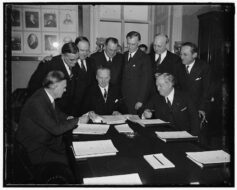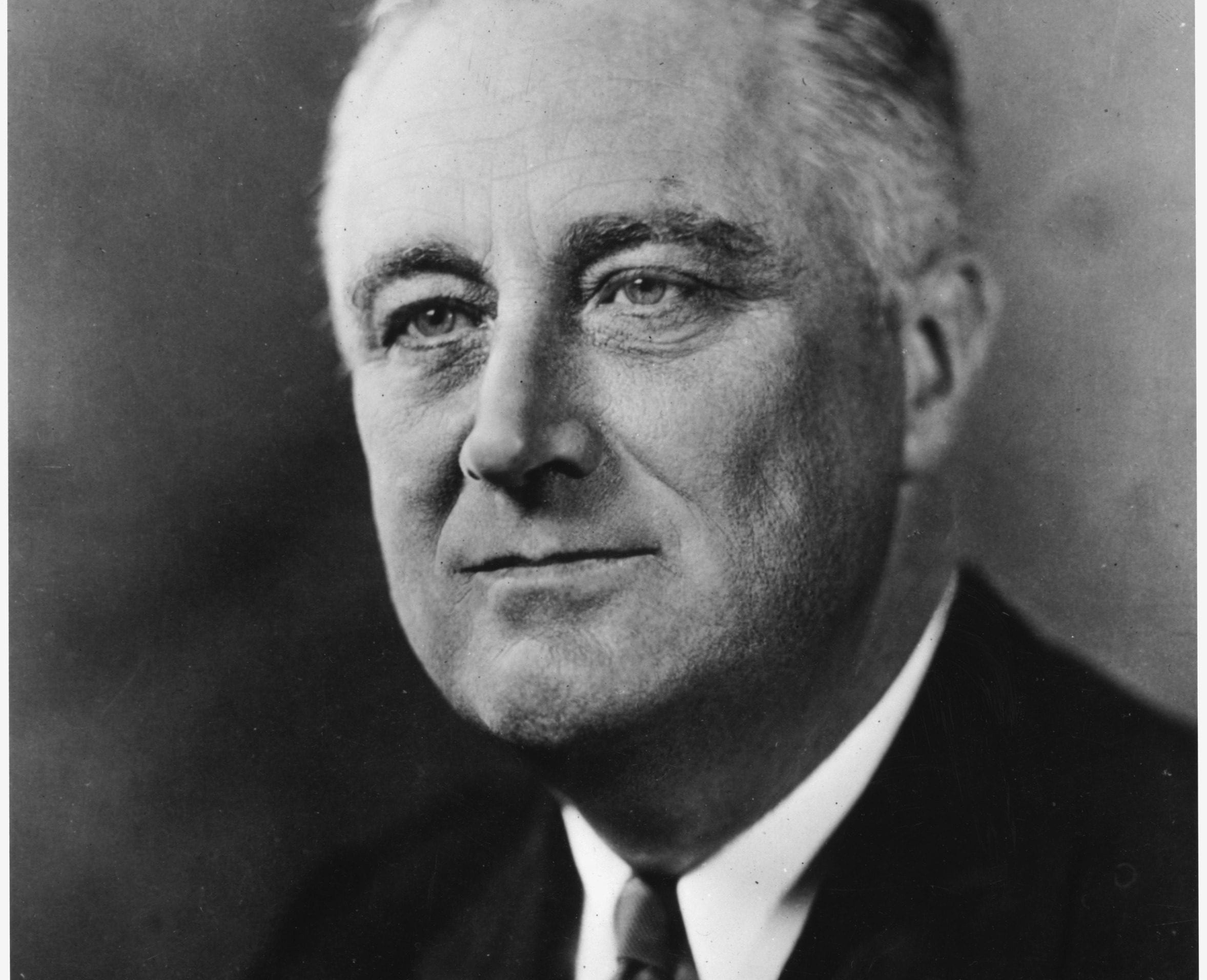

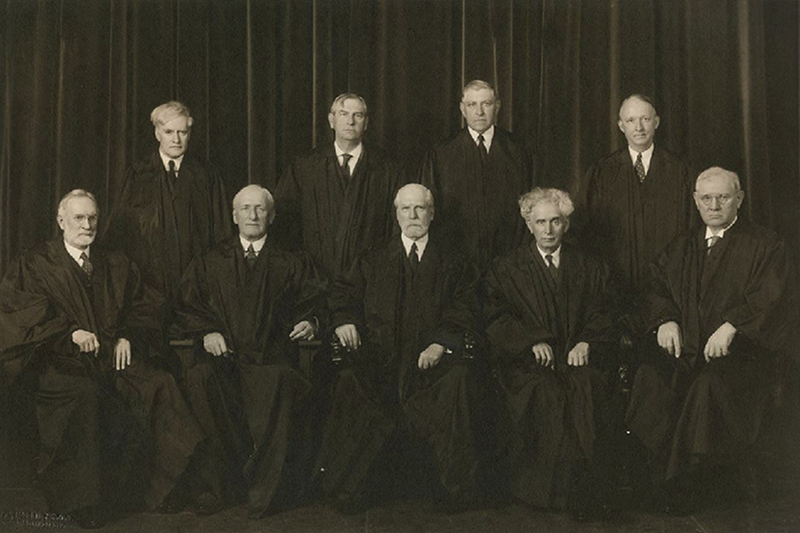
Introduction
In US v. Curtiss-Wright (1936), the Supreme Court held that because the president is in charge of American diplomacy, he could be given legislative powers from Congress in foreign affairs that he could not receive in domestic matters. But could the president make binding legal agreements (“executive agreements”) with foreign states as part of his power to conduct foreign affairs?
The Court addressed the issue in US v. Belmont (1937). The case arose when the Bolsheviks seized power in Russia during the Soviet Revolution. In some of their first acts, they nationalized and seized the assets of many banks, corporations, and industries. Some of those companies had assets in the United States. Did the new Soviet government own those ? The answer was unclear until 1933, when President Franklin Roosevelt formally recognized the Soviet Union by receiving their ambassadors, a power of the president under Article II, section 3 of the Constitution. As part of that recognition, the Roosevelt administration negotiated the Litvinov Assignment (named after the Soviet foreign minister), an executive agreement between the US and the Soviet Union in which the United States agreed to “assign” assets held by Americans in Russian companies to the Soviet government, and the Soviets agreed to do likewise to assets held in America by Russian individuals or companies. For the Roosevelt administration, the Litvinov Assignment was important in normalizing the relationship between the US and the Soviet Union.
The legality of one of the Assignments was challenged by August Belmont Co., a New York bank that held assets of a Russian company called Petrograd Metal Works. Belmont contended that President Roosevelt did not have the constitutional power to make a foreign agreement that was legally binding in American courts. That, Belmont argued, could only be done through a treaty ratified by the Senate. When Belmont won in a lower court, the US appealed to the Supreme Court. The Court ruled unanimously that the president’s control of foreign affairs gave him the power to make legally binding executive agreements. Five years later in U.S. v. Pink (1942), the Court reaffirmed that such agreements are superior to any conflicting state laws, essentially giving executive agreement a legal status under the Constitution similar to treaties.
Although executive agreements can be undone by the next president, they can be a way around the need for the Senate to ratify a treaty, which gives the president much more latitude in conducting foreign affairs. Belmont has thereby served as a constitutional foundation for the widening use of executive agreements by modern presidents and for a broader understanding of the president’s constitutional power in foreign relations.
Source: 301 U.S. 324; https://www.law.cornell.edu/supremecourt/text/301/324
Justice SUTHERLAND delivered the opinion of the Court, joined by Chief Justice HUGHES and Justices VAN DEVANTER, McREYNOLDS, ROBERTS, and BUTLER.
This is an action at law brought by [the estate of August Belmont] in a federal district court to recover a sum of money deposited by a Russian corporation (Petrograd Metal Works) with August Belmont, a private banker doing business in New York City under the name of August Belmont & Co. . . .
The corporation had deposited with Belmont, prior to 1918, the sum of money which petitioner seeks to recover. In 1918, the Soviet Government duly enacted a decree by which it dissolved, terminated and liquidated the corporation (together with others), and nationalized and appropriated all of its property and assets of every kind and wherever situated, including the deposit account with Belmont. As a result, the deposit became the property of the Soviet Government, and so remained until November 16, 1933, at which time the Soviet Government released and assigned to [the United States] all amounts due to that government from American nationals, including the deposit account of the corporation with Belmont. . . .
The assignment was effected by an exchange of diplomatic correspondence between the Soviet Government and the United States. The purpose was to bring about a final settlement of the claims and counterclaims between the Soviet Government and the United States, and it was agreed that the Soviet Government would take no steps to enforce claims against American nationals, but all such claims were released and assigned to the United States, with the understanding that the Soviet Government was to be duly notified of all amounts realized by the United States from such release and assignment. . . . The continuing and definite interest of the Soviet Government in the collection of assigned claims is evident, and the case, therefore, presents a question of public concern, the determination of which well might involve the good faith of the United States in the eyes of a foreign government. The court below held that the assignment thus effected embraced the claim here in question, and with that we agree.
That court, however, took the view that . . . the bank deposit was within the State of New York; that in no sense could it be regarded as an intangible property right within Soviet territory, and that the nationalization decree, if enforced, would put into effect an act of confiscation. And it held that a judgment for the United States could not be had, because, in view of that result, it would be contrary to the controlling public policy of the State of New York. The further contention is made by [Belmont] that the public policy of the United States would likewise be infringed by such a judgment. The two questions thus presented are the only ones necessary to be considered.
First. We do not pause to inquire whether, in fact, there was any policy of the State of New York to be infringed, since we are of opinion that no state policy can prevail against the international compact here involved.
This court has held . . . that every sovereign state must recognize the independence of every other sovereign state, and that the courts of one will not sit in judgment upon the acts of the government of another done within its own territory.
That general principle was applied in Oetjen v. Central Leather Co. (1918), [where] . . . [t]his court held that the conduct of foreign relations was committed by the Constitution to the political departments of the government, and the propriety of what may be done in the exercise of this political power was not subject to judicial inquiry or decision; that who is the sovereign of a territory is not a judicial question, but one the determination of which by the political departments conclusively binds the courts, and that recognition by these departments is retroactive, and validates all actions and conduct of the government so recognized from the commencement of its existence. . . .
We take judicial notice of the fact that, coincident with the assignment set forth in the complaint, the President recognized the Soviet Government, and normal diplomatic relations were established between that government and the Government of the United States, followed by an exchange of ambassadors. The effect of this was to validate, so far as this country is concerned, all acts of the Soviet Government here involved from the commencement of its existence. The recognition, establishment of diplomatic relations, the assignment, and agreements with respect thereto, were all parts of one transaction, resulting in an international compact between the two governments. That the negotiations, acceptance of the assignment, and agreements and understandings in respect thereof were within the competence of the President may not be doubted. Governmental power over internal affairs is distributed between the national government and the several states. Governmental power over external affairs is not distributed, but is vested exclusively in the national government. And in respect of what was done here, the Executive had authority to speak as the sole organ of that government. The assignment and the agreements in connection therewith did not, as in the case of treaties, as that term is used in the treaty-making clause of the Constitution (Article II, section 2), require the advice and consent of the Senate. . . .
Plainly, the external powers of the United States are to be exercised without regard to state laws or policies. The supremacy of a treaty in this respect has been recognized from the beginning. . . . And while this rule in respect of treaties is established by the express language of clause 2, Article VI, of the Constitution, the same rule would result in the case of all international compacts and agreements from the very fact that complete power over international affairs is in the national government, and is not and cannot be subject to any curtailment or interference on the part of the several states. Compare United States v. Curtiss-Wright Export Corp. (1936). In respect of all international negotiations and compacts, and in respect of our foreign relations generally, state lines disappear. As to such purposes, the State of New York does not exist. Within the field of its powers, whatever the United States rightfully undertakes it necessarily has warrant to consummate. And when judicial authority is invoked in aid of such consummation, state constitutions, state laws, and state policies are irrelevant to the inquiry and decision. It is inconceivable that any of them can be interposed as an obstacle to the effective operation of a federal constitutional power.
Second. The public policy of the United States relied upon as a bar to the action is that declared by the Constitution, namely, that private property shall not be taken without just compensation. But the answer is that our Constitution, laws and policies have no extraterritorial operation unless in respect of our own citizens. What another country has done in the way of taking over property of its nationals, and especially of its corporations, is not a matter for judicial consideration here. Such nationals must look to their own government for any redress to which they may be entitled. So far as the record shows, only the rights of the Russian corporation have been affected by what has been done, and it will be time enough to consider the rights of our nationals when, if ever, by proper judicial proceeding, it shall be made to appear that they are so affected as to entitle them to judicial relief. The substantive right to the moneys, as now disclosed, became vested in the Soviet Government as the successor to the corporation, and this right that government has passed to the United States. It does not appear that respondents have any interest in the matter beyond that of a custodian. Thus far, no question under the Fifth Amendment is involved.
It results that the complaint states a cause of action, and that the judgment of the court below to the contrary is erroneous. In so holding, we deal only with the case as now presented, and with the parties now before us. We do not consider the status of adverse claims, if there be any, of others not parties to this action. And nothing we have said is to be construed as foreclosing the assertion of any such claim to the fund involved, by intervention or other appropriate proceeding. We decide only that the complaint alleges facts sufficient to constitute a cause of action against the respondents.
Judgment reversed.
Justice STONE, concurring, joined by Justices CARDOZO and BRANDEIS.
I agree with the result, but I am unable to follow the path by which it is reached. . . .
. . . [T]his Court has often recognized that a state may refuse to give effect to a transfer, made elsewhere, of property which is within its own territorial limits, if the transfer is in conflict with its public policy. . . .
It does not appear that the State of New York, at least since our diplomatic recognition of the Soviet government, has any policy which would permit a New York debtor to question the title of that government to a claim of the creditor acquired by its confiscatory decree, and no reason is apparent for assuming that such is its policy. . . .
. . . We may, for present purposes, assume that the United States, by treaty with a foreign government with respect to a subject in which the foreign government has some interest or concern, could alter the policy which a state might otherwise adopt. It is unnecessary to consider whether the present agreement between the two governments can rightly be given the same effect as a treaty within this rule, for neither the allegations of the bill of complaint, nor the diplomatic exchanges, suggest that the United States has either recognized or declared that any state policy is to be overridden. . . .

Conversation-based seminars for collegial PD, one-day and multi-day seminars, graduate credit seminars (MA degree), online and in-person.




